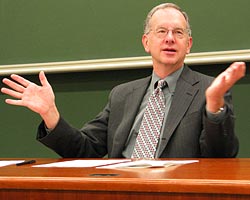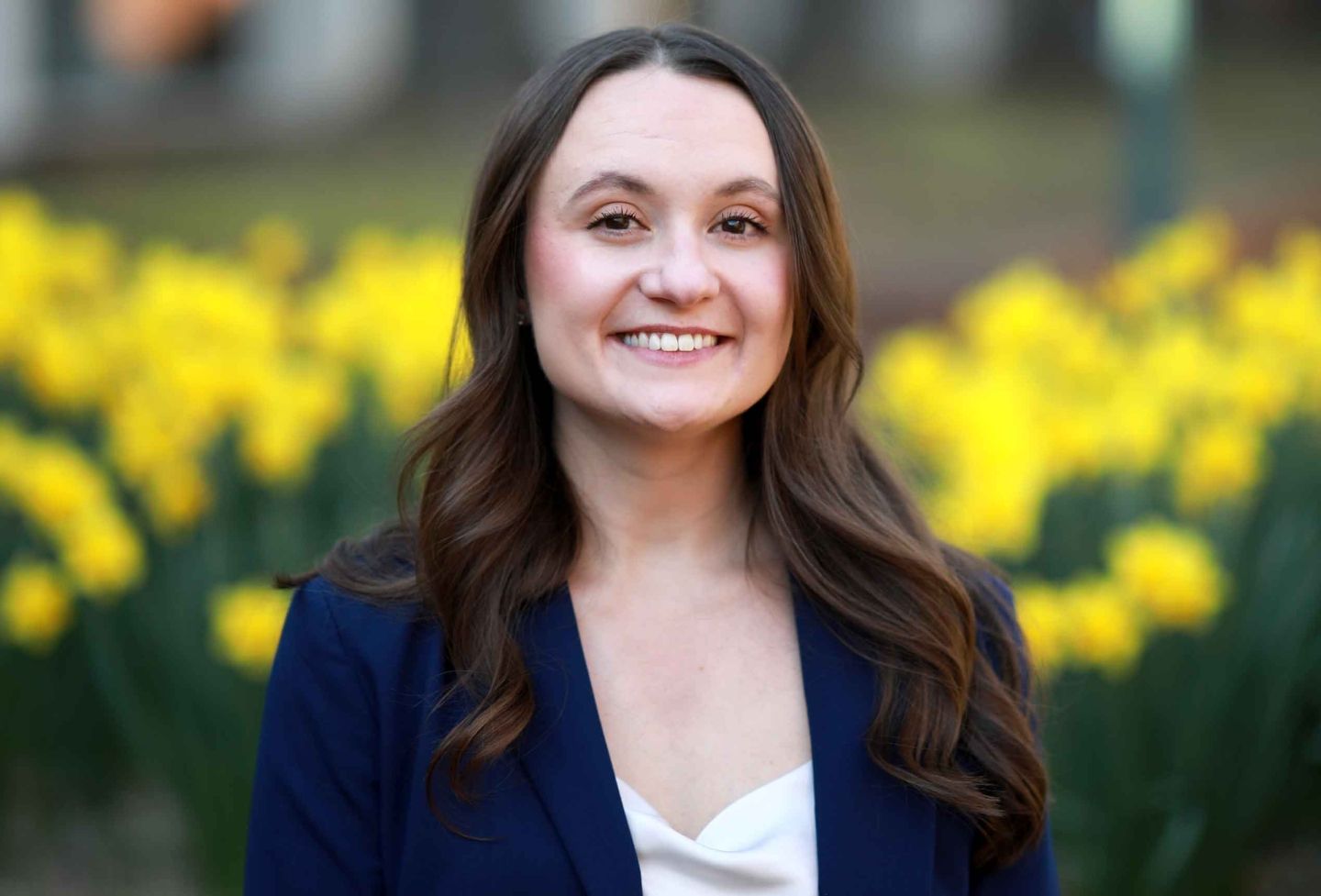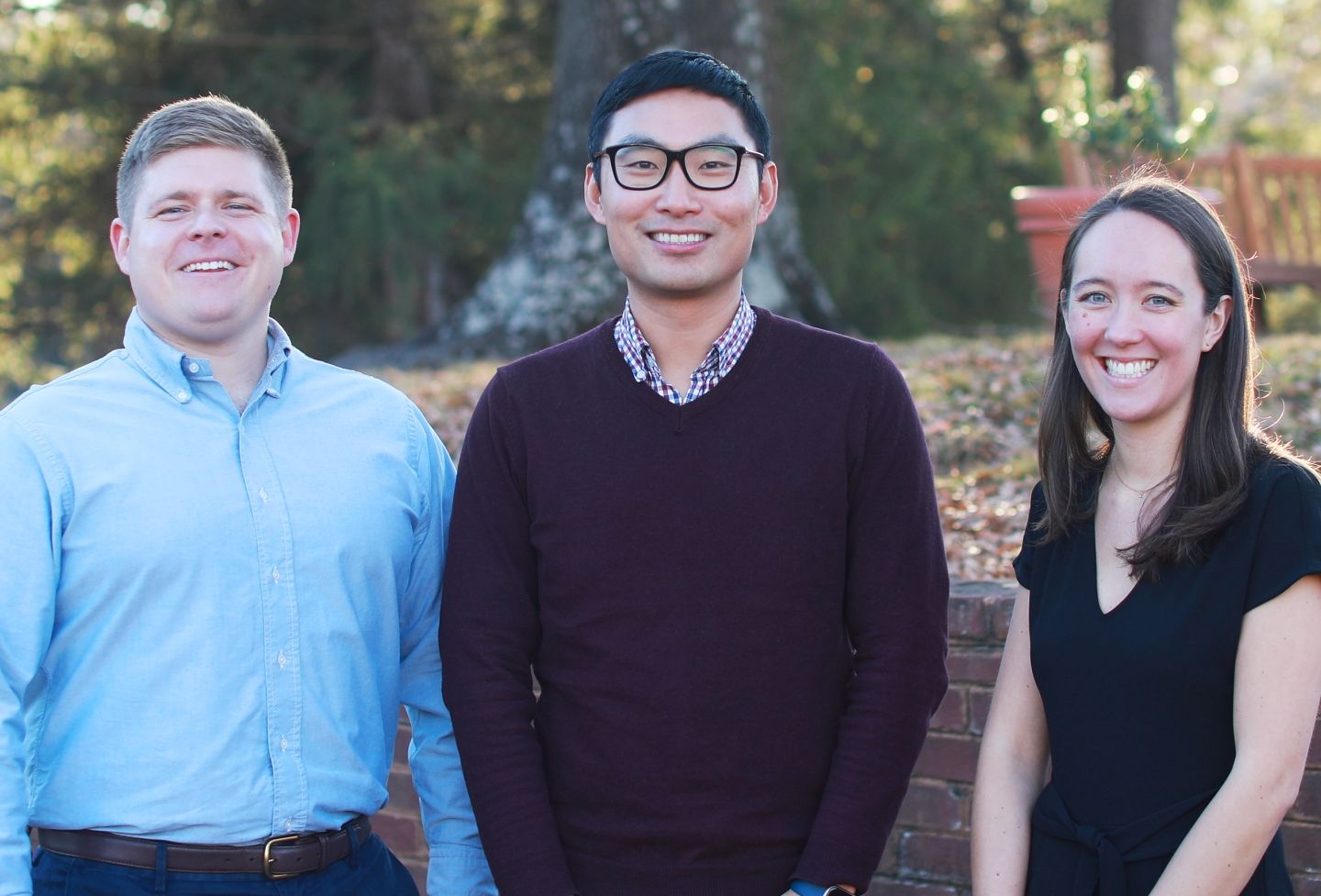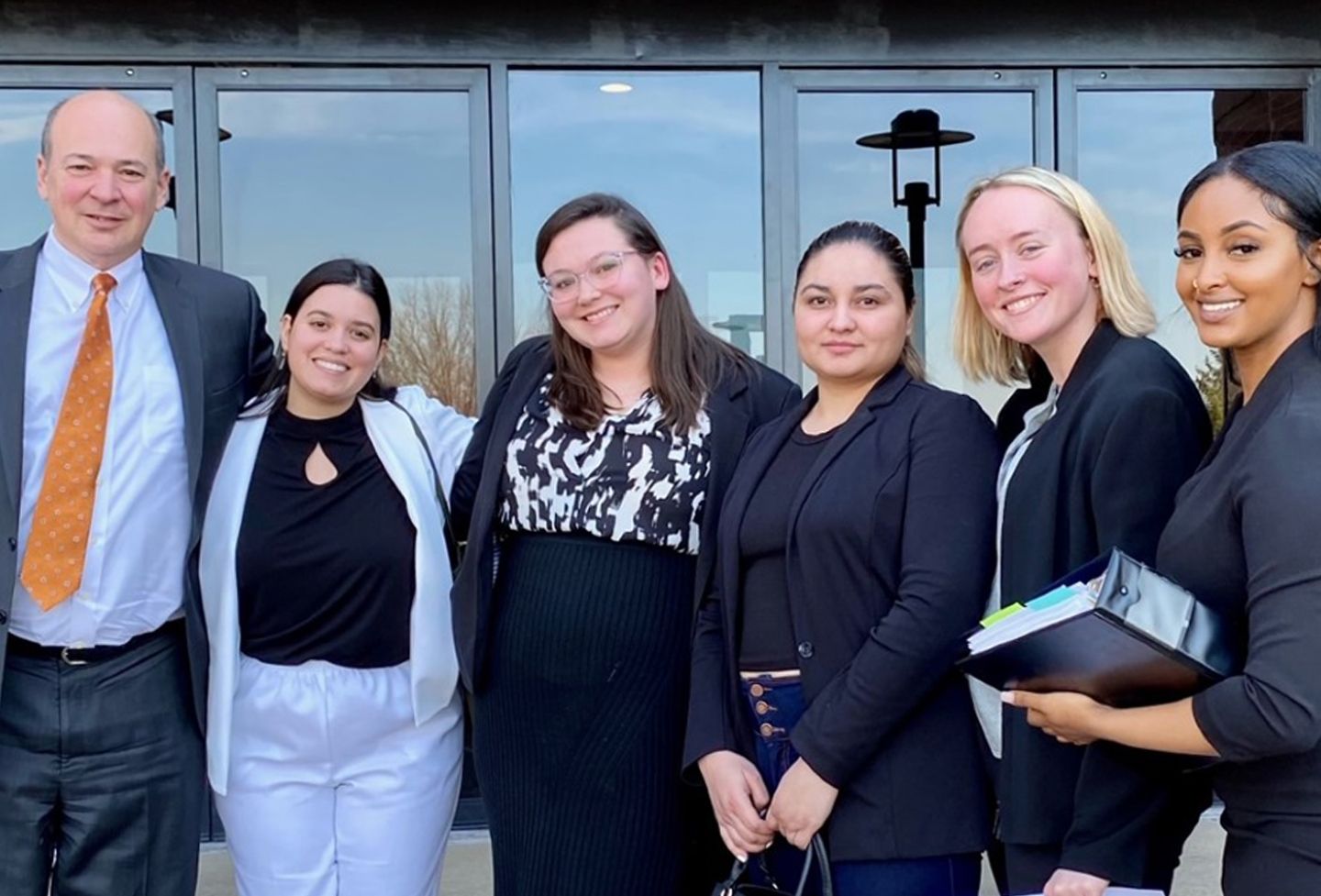Bush Plan Fails to Address Serious Immigration Issues, Martin Says

The Bush administration's recently proposed immigration plan will only add to the problems facing immigration officials and could depress U.S. workers' wages if approved by Congress, said law professor David Martin, who served as INS General Counsel from 1995-98. At the American Constitution Society's Brown Bag Lunch Series Feb. 9, Martin called the plan vague and poorly conceived and said administration officials apparently did not consult with long-time immigration officials while crafting it.
Martin said his initial reaction to the plan was to quote former tennis champion John McEnroe: "You cannot be serious." Martin said he supports steps to address the situation of the undocumented population in general, but "I don't see how to do this quickly or on a short timeframe in a way that is sustainable in the long run." Quick fixes, he said, will probably only compound the problems posed by illegal migration.
Bush's plan calls for current undocumented immigrants working in the country to receive temporary-worker status for three years. Employers could hire foreign workers in the future as well if they cannot find U.S. workers for jobs, in what Bush called a "quick and simple process." Bush has repeatedly suggested "he wants to match up willing employers and willing employees."
Of the estimated 9 million illegal immigrants in the country, 6 million are currently in the workforce, Martin said, and more often in regular businesses than working in underground or off-the-books labor, as stereotypes suggest. The typical undocumented migrant's working situation is "not necessarily the kind of unending oppression that the press has tended to indicate."
Martin noted that lawmakers in 1986 offered a one-time amnesty program covering most undocumented workers in the country, but also tried to beef up enforcement of legal migration by requiring employers to verify potential employees' legal work status or face consequences.
"Unfortunately the advent of this system coincided with the advent of desktop publishing," Martin wryly noted. The 1986 legislation did not require employers to probe for further information if they merely suspected that workers supplied forged documents to get a job — they only had to reject such applicants if documents were obviously invalid. Furthermore, employers might face a discrimination suit if they did not hire someone based on such suspicions. "Since then, we've developed a much larger undocumented immigrant population," he added.
Martin said there is talk that Bush's plan is an election-year ploy to gain support from Latino voters, but "it matches up oddly with the greater interest in tougher enforcement that grew out of the September 11th response."
Martin also commented on the track of Bush's statements on immigration. After taking office, Bush made statements on immigration reform and in meetings with Mexican President Vicente Fox suggesting he might grant amnesty to Mexican immigrants; at the time, Martin explained, he was not well-staffed in immigration policy, so he may have had no senior aides with immigration experience to tell him it might be a more complicated issue. "By the summer of 2001, you could see them beginning to back off," Martin said. When he met with Fox early in September 2001, "Bush was clearly in back-track mode." September 11 "seemed to provide a convenient way for President Bush to step back from statements made pretty early on."
Administration officials have suggested the new plan will help them track potential terrorists entering the country, but Martin cautioned against this assumption. "Those making the most exploitative use of underground status are not the ones likely to come forward," he said. Security screening isn't foolproof anyway, he added.
Overall Bush's proposal has "a lot of incompleteness." Martin chided the administration for raising the expectations of undocumented immigrants and employers without thinking hard about the issues first.
The plan doesn't have measures to move such workers toward permanent legal status, but doesn't appear to preclude them from seeking permanent status either, Martin said. Under the plan, temporary workers would be allowed to visit their home country and return during the three years they have status. Temporary workers may also be able to bring their families, if they can support them, which raises additional administrative issues.
Martin noted the federal government has actually been bolstering the Border Patrol over the last decade, and has adopted a new strategy of placing officers in visible spots to deter Mexicans considering crossing the border. Martin called the strategy successful in that it prevented mass crossings at popular locations (which often happened at night, when only a few could be caught), but it also "has driven the migrant pattern to more dangerous parts of the border," so more have died while trying to cross. Some say the strategy forces Mexicans to stay longer in America because they can't cross back to Mexico to visit friends and family easily. The price of smuggling immigrants has also shot up ten-fold since the policy change, so that some Mexicans can't afford the trip. "It's quite likely that [the new Border Patrol strategy] has had an impact in deterring immigrants," Martin said, although hard evidence has not been produced.
Some question whether Bush's new plan has enough incentives to bring the undocumented population out of hiding, but "I'm inclined to think in the end [the three-year limit] wouldn't be too big of a barrier" to coming forward, Martin said. Congress might be persuaded to pass further measures protecting such workers by the end of the period, Martin speculated, or the current workers may come to realize that the immigration agency probably won't be any better equipped then to deport those who don't leave as required.
Another problem with the program is that the temporary-worker status "leaves the worker vulnerable to exploitation," Martin said. The plan gives employers a lot of power over such workers, because they can threaten them with loss of status.
"In the end the Bush plan amounts to a huge gift to employers," Martin said. "What is required of this 'quick and simple process' to try and find U.S. workers?"
The process for finding U.S. workers over foreign workers is so undefined that if it only depends on an employer-employee bargain, employers "could just offer minimum wage for every job." Martin said he suspected that if the plan goes forward, a "prevailing wages" requirement would be added, where employers would have to offer a given job at the prevailing wage for the position and location. But prevailing wages are hard to monitor and in any event wages could grow stagnant if employers take advantage of the plan.
Martin said the Department of Homeland Security is still getting on its feet and already is falling behind in addressing an intake of 7 million applications a year. The plan could double that number "without much of a sign that [the administration is] going to increase the resources of that agency." The Department of Labor will also likely play a role policing work conditions. "Both the Department of Homeland Security and the Department of Labor are not equipped to deal with this," Martin said.
The plan is being sold as ending the illegal immigration problem, Martin said, calling the idea "totally illusory." Martin said there's no reason migrants wouldn't continue to come outside normal channels, since employers are unlikely to recruit someone still living in China, for example. "Most of the social science for migration indicates it's a network phenomenon," he added. Once one undocumented worker gains status, as happened in 1986, they provide an anchor that makes it easier for family members or friends to come.
Because the program doesn't necessarily lead to permanent status, Bush can appease the right by pointing out the program doesn't offer amnesty and therefore doesn't reward law-breaking. Other proposals milling around Washington focus on "earned amnesty," in which undocumented workers now working in the United States for a certain length of time could get full legal status.
Martin said earned amnesty alone won't solve the nation's immigration problems either. He supported spending a few more years creating a better immigration management system, tightening enforcement, and improving employer sanctions by using a system to verify the documents presented at the time of employment, for example. Once such a system is in place, it may be appropriate to talk about some kind of earned amnesty. "All of this I think needs to be a gradual process," he said.
Despite the fanfare surrounding Bush's announcement, Martin said he would "be surprised if something gets enacted this year." The United States goes on cycles of immigration control and laxity, often depending on the state of the economy. Former California Governor Pete Wilson rode to office in 1994 on a plan to exclude illegal immigrants from state services.
With this plan, "there's no bill [setting out the legislative details]; that's one of the really curious things," Martin said. He added that administration officials may be working behind the scenes with Congress in order to get a bill going before the election, but by all appearances, "it's not very seriously on the Bush agenda."
Asked about the future of immigration by an audience member, Martin predicted that Americans will demand immigration controls for the next several decades, but by then Mexican immigration may not be a big issue. The birth rate is declining in Mexico, and if the country gets some lucky economic breaks, there may be enough jobs to reduce immigration pressures. He drew a parallel to the history of the European Union. It began with free movement of goods and capital, and by the time the EU introduced free movement of labor many years later, economic improvements in the poorer countries of Europe had been so successful that few migrated.
Founded in 1819, the University of Virginia School of Law is the second-oldest continuously operating law school in the nation. Consistently ranked among the top law schools, Virginia is a world-renowned training ground for distinguished lawyers and public servants, instilling in them a commitment to leadership, integrity and community service.


